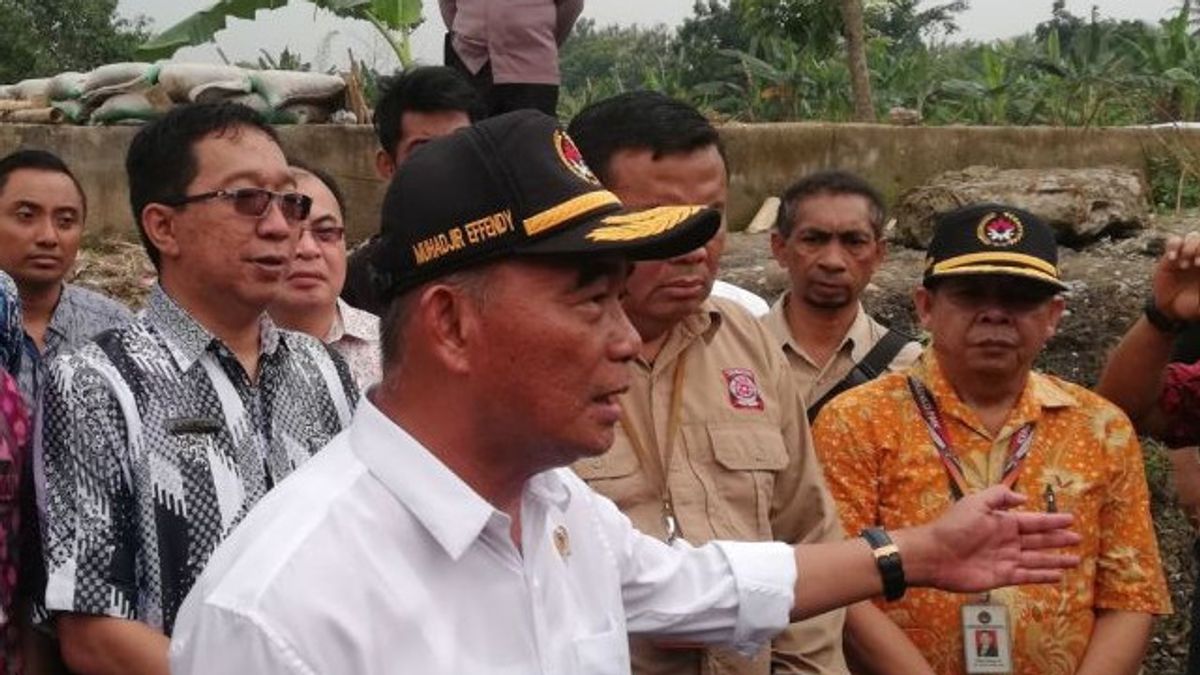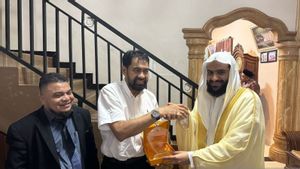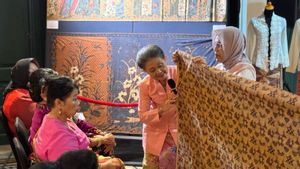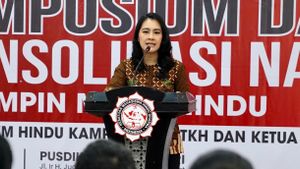SEMARANG - Coordinating Minister for Human Development and Culture (Menko PMK) Muhadjir Effendy assessed that the decision of the Constitutional Court (MK) on a lawsuit related to marriage of different religions could provide certainty.
"So, what has been in the gray space, the gray area, which has become a polemic, has become a debate, if it has been decided by the Constitutional Court it will become clear," said Muhadjir, quoted by ANTARA Tuesday, January 31.
This was conveyed by Muhadjir in response to the Constitutional Court's decision on the lawsuit against Law Number 1/1974 concerning Marriage by E Ramos Petege, a young man from Gabakanunu Village, Central Mapia, Papua Province.
"Hopefully, the Constitutional Court's decision is the best decision," concluded Muhadjir briefly.
Previously, the Constitutional Court Panel of Judges rejected Law No. 1/1974 concerning Marriage proposed by E Ramos Petege, after failing to formalize his love affair with his favorite girl due to religious differences.
It is known that applicant E. Ramos Petege is a Catholic, while the woman he wants to marry is Muslim.
"Rejected the applicant's application in its entirety," said Chief Justice of the Constitutional Court Prof. Anwar Usman when reading the verdict of case Number 24/PUU-XX/2022 in Jakarta, Tuesday.
Constitutional Court Judge Prof. Enny Nurbaningsih said that human rights are rights recognized by Indonesia which are then contained in the 1945 Constitution as the constitutionality right of citizens.
However, human rights in force in Indonesia must be in line with the philosophy of Indonesian ideology based on Pancasila as the identity of the nation.
He explained that in the context of marriage which is the subject of case issues, there is a difference in the construction of protection guarantees between Universal Declaration of Human Rights (UDHR) and the 1945 Constitution. Article 16 Paragraph (1) UDHR states explicitly "Men and women of full age, without any limitation due to race, nationality or religion, have the right to marry and to found a family". If translated "male and adult women with no national, citizenship or religious restrictions, are entitled to marry and to form a family".
Meanwhile, the 1945 Constitution has a different formulation construction through Article 28B Paragraph (1) which states "Everyone has the right to form a family and continue their descent through a legal marriage". Based on the formulation of Article 28B Paragraph (1) of the 1945 Constitution, there are two rights that are guaranteed firmly in the a quo provisions, namely the right to form a family and the right to continue their descendants.
The English, Chinese, Japanese, Arabic, and French versions are automatically generated by the AI. So there may still be inaccuracies in translating, please always see Indonesian as our main language. (system supported by DigitalSiber.id)













